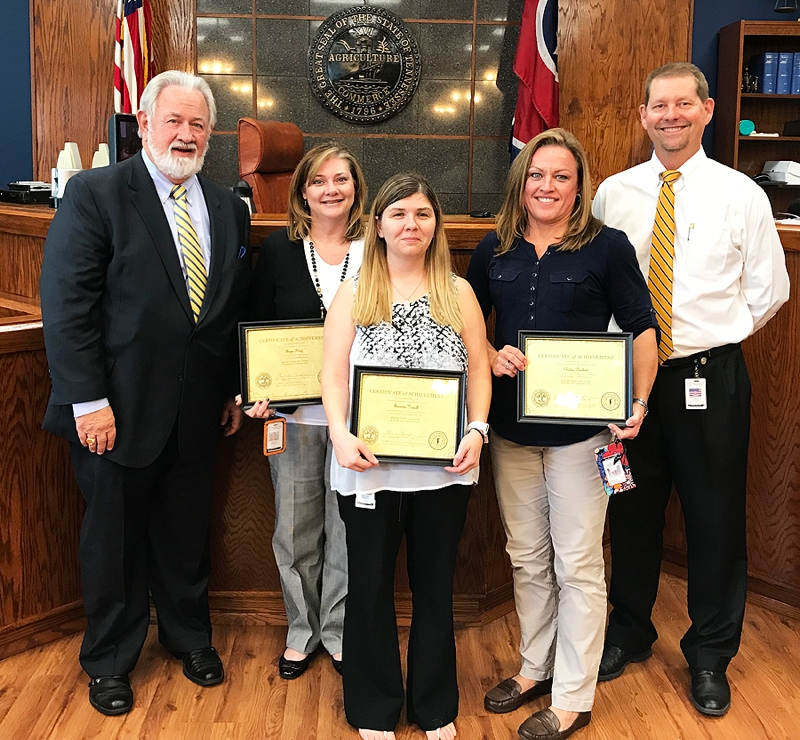Changes being made in Court Clerk’s office
Newly elected circuit court clerk Rex Lynch has had a busy 30 days in office already. He’s re-interviewed all the current employees — only three went on to find other employment — written job descriptions and titles for every employee, hired a collections officer and extended the hours of operation.
He’s also added a very important question to ask jurors every morning that they are on duty: have you moved since you were last here?
Back in January, a clerk noticed that a check was going out to one of the jurors on the Anderson County grand jury; but, it was being sent out to a home in Blount County.
Jurors legally have to live in the county they serve. That one mistake caused three months of criminal indictments to be thrown out.
“Everybody makes mistakes, but that one was pretty serious,” Lynch said. “That one little simple question cost this county tens of thousands of dollars. We had to retry some cases, bring witnesses back.”
There were several dozens of cases during those three months going back to November 2017, according to Lynch.
“We’re preventing it now just by asking every single time if anybody has moved,” he said.
Lynch was elected to office in August 2018.
Another area the circuit court clerk is working on is increasing the amount of revenue brought in through court costs. Six or seven years ago, according to Lynch, the office turned in between $850 thousand - $1 million to the county just from court costs. Two years ago, it only collected in the low $700 thousands, and last year only around $612 thousand.
“That’s not even enough to cover all of our salaries,” Lynch said.
When a ticket is written for a seatbelt violation for $25, $5 of that is a court cost.
“We have a file of seatbelt tickets back here that nobody’s collecting,” he said.
All the misdemeanors that go through general sessions court have court costs, according to Lynch. If people failed to pay in the past, no one would follow up. Now, he has a collections clerk that will work with people to get payment plans set up if they’re unable to pay the full amount immediately.
“We get their name, address and where they work,” Lynch explained. “If we’re aggressive on it, I think we can collect $1 million.”
That doesn’t mean “beating down the door of needy families” though, according to Lynch.
“We’re not going to take food off their table,” he added. A community service program will be available as an option. In partnership with PSI Probation, people can perform community service at places like the Little Ponderosa and apply the time served to their debt.
Another change is the addition of probable cause clerks, a change that will make end-of-shift easier for police officers, according to Lynch. Prior to this, officers on duty had to fill out an arrest warrant and wait for the clerks to get to work in order for the warrant to be signed off on. Often, officers would get off work around 6:30 a.m. after a 24-hour shift but have to wait another hour for someone to get to the courthouse. This added an hour of overtime.
“They want to go home, but they have to get their paperwork in,” Lynch explained.
Five clerks — Angie Perez, Amanda Braden, Shalea Prickett, Angie Alley and Emily Wallce — went through training and received certification to be able to sign the warrants and become probable cause clerks. They’ll arrive at the courthouse by 6:30 a.m. at all four circuit clerk offices in Anderson County.



